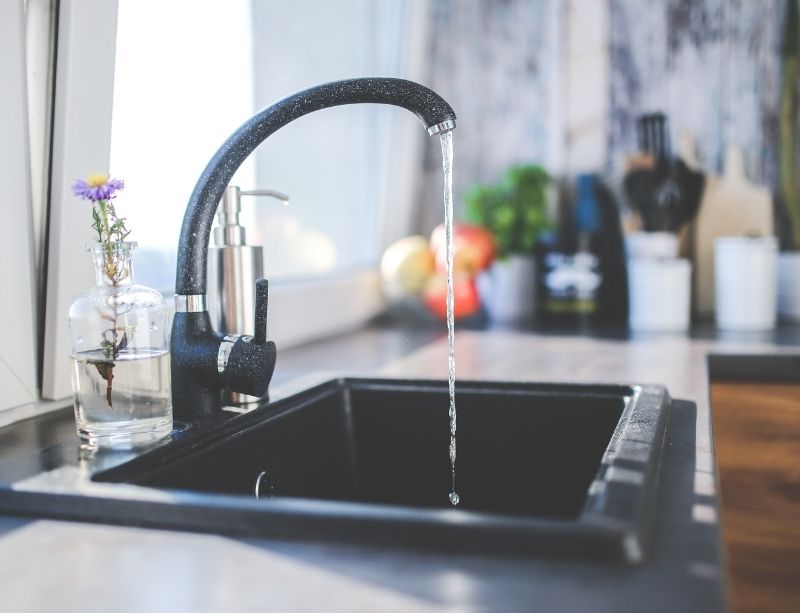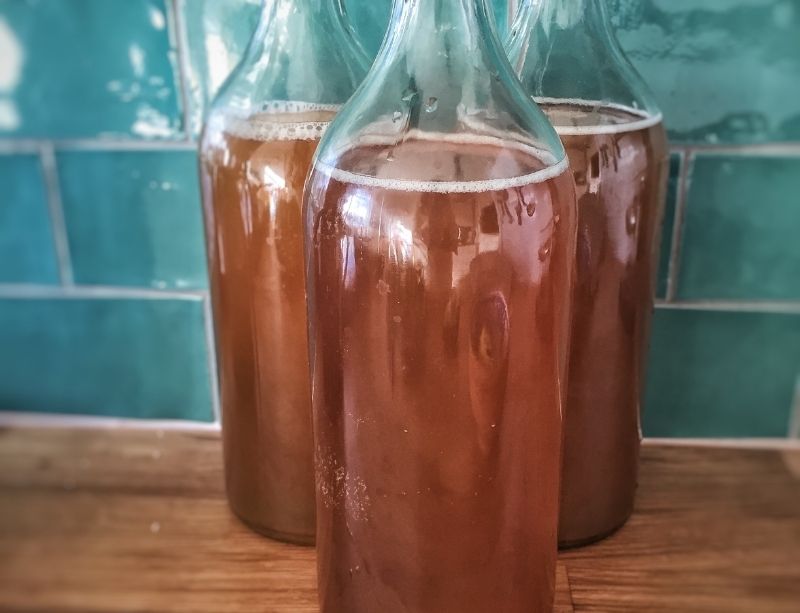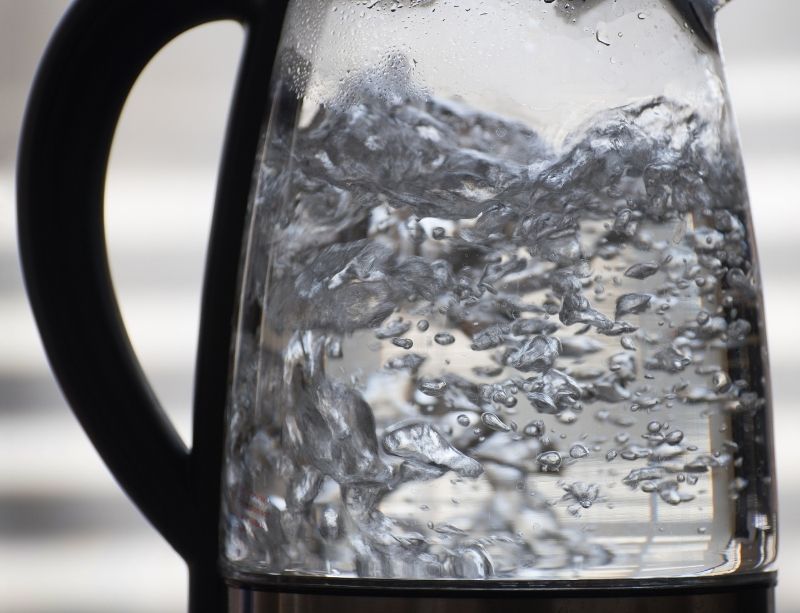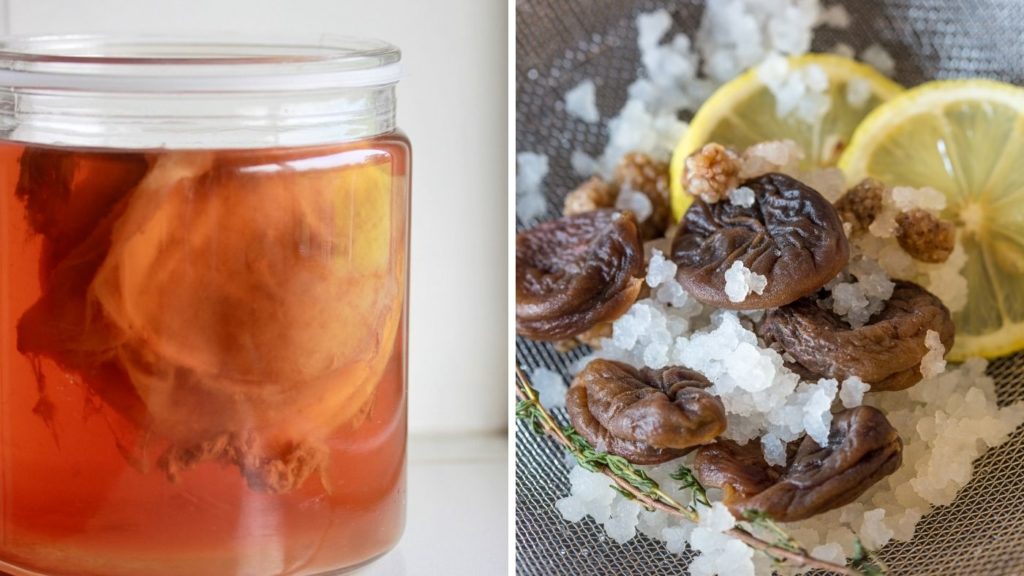Tap water, spring water, bottled water… What is the best water for homemade fermentations?
Water is one of the main ingredients in the preparation of kombucha, water kefir, sourdough, beer, and many other fermented foods. It goes without saying that the water used has an impact on the quality and taste of fermented foods.
This article will help you choose the best water to do your fermentations, and answer all your questions!
In summary:
You can use the same water you drink at home. If it is drinkable, it is usually quite suitable for fermentations!
If your tap water is not to your taste, buying a water filter is a very good option.
Go Directly to the Section That Interests You:
What Is the Most Suitable Water for Fermentations?
Water used for fermentation can come from a variety of sources. However, depending on its purification and transportation process, the water may contain chemical additives, minerals, etc.

Tap Water
Tap water can be used for your fermentations. If your municipal water is safe to drink, it can be safely used for your fermentations.
However, tap water may contain chlorine or fluoride residues. These can affect your fermentations if present in too large quantities. To find out more, check out the chlorine and fluoride section.
Well Water
If the analysis of your well indicates that it is potable, well water can be used for fermentations. However, we recommend that you have your well tested every year for possible contamination.
Well water is particularly rich in minerals, which makes it a good option for water kefir. However, it may be too concentrated in minerals for kombucha.
Bottled Water
Bottled water can be used for fermentations. Spring water, in particular, contains minerals that are beneficial for some fermentations like water kefir.
However, if you have access to another source of drinking water, we do not recommend buying bottled water. Its quality-price ratio and environmental impact do not make it a good choice.
In addition, many bottled water companies collect tap water and sell it in plastic bottles.
Distilled Water
Distilled water is completely free of all minerals, contaminants, bacteria, and even pharmaceutical residues.
However, many fermentations such as water kefir, kombucha, and lacto-fermentations benefit from using water with higher mineral content. Since distilled water does not contain minerals, you have to compensate with other ingredients.
Sea Water, Rainwater, Etc.
Although fermentation is safe, it is not magic! It is important to use ingredients that are safe and suitable for human consumption.
Seawater and rainwater contain microorganisms and contaminants that could interfere with fermentation.
In summary, as long as the water is safe to drink, it can be used for fermentations!

Water Compounds That Affect Fermentations
Minerals and Nutrients
Depending on its origin and treatment, water can contain more or fewer minerals. Water rich in minerals is ideal for lacto-fermentations and water kefir.
However, be careful! If your water is too rich in minerals, it may interfere with the fermentation process and reduce the activity of the microorganisms. If necessary, filter using a carbon filter.
Chlorine and Fluoride
Tap water is often treated with chlorine and fluoride to prevent bacterial contamination. These products are intended to destroy unwanted bacteria. However, they can also affect the good microorganisms in your fermentations if found in too large amounts.
In addition, the taste of chlorine may affect the taste of your fermentations.

How to Remove Chlorine from Tap Water
If you need to purify or remove chlorine from your tap water, here are 4 ways to do it.
1. Let the Water Sit for a While
Chlorine is highly volatile and can evaporate simply by letting the water sit. Place the water in a carafe and let it sit for 30 minutes to 12 hours.
You can also stir occasionally to speed up evaporation.
2. Boiling the Water
You can bring the water to a boil to speed up the chlorine evaporation. Let it cool to room temperature to avoid scalding your fermentations.
3. Carbon Filtering
Before using your water, filter it through an activated carbon filter. Filter water jugs with replacement cartridges are available on the market.
Other Options Not Recommended: Reverse Osmosis and Fine Filtration
Although some filtration systems are very effective in removing chlorine and residues from water, we do not recommend using them.
Reverse osmosis and fine filtration remove minerals from the water, which could weaken the fermentation.

